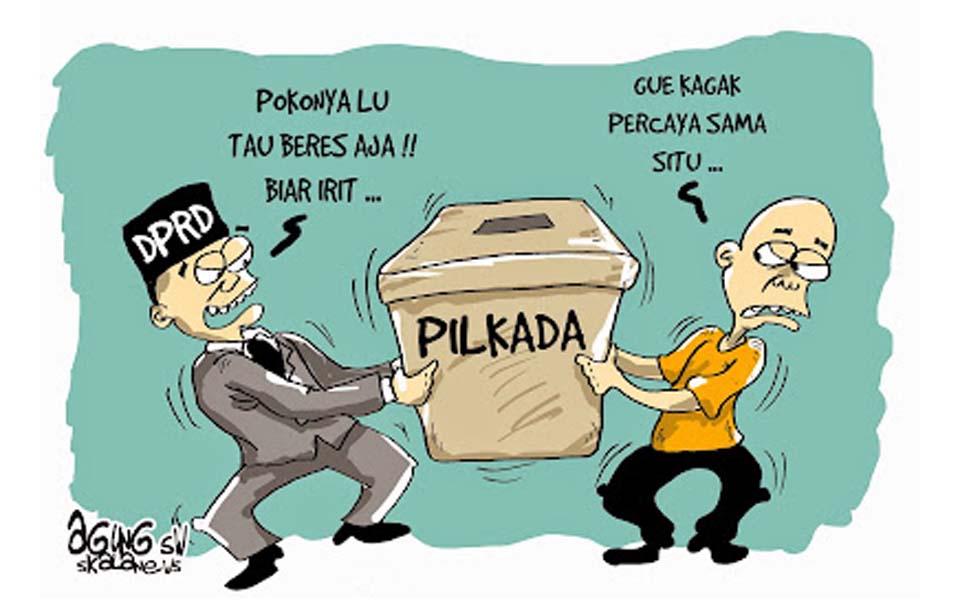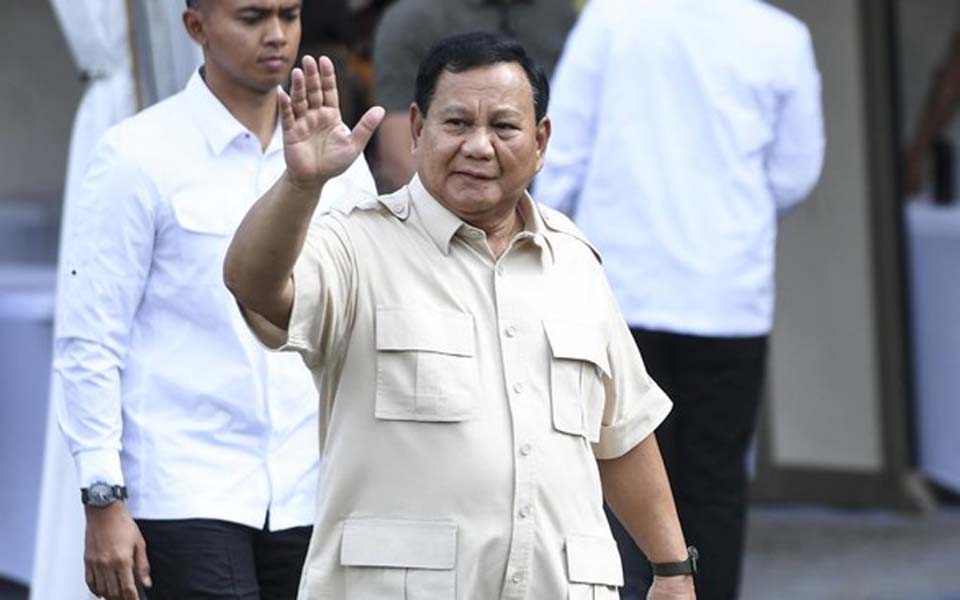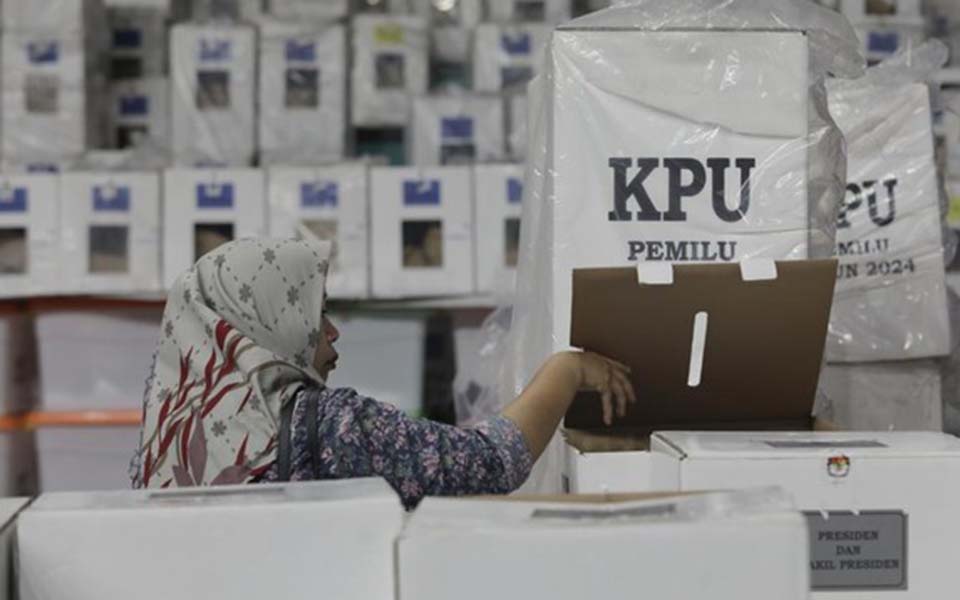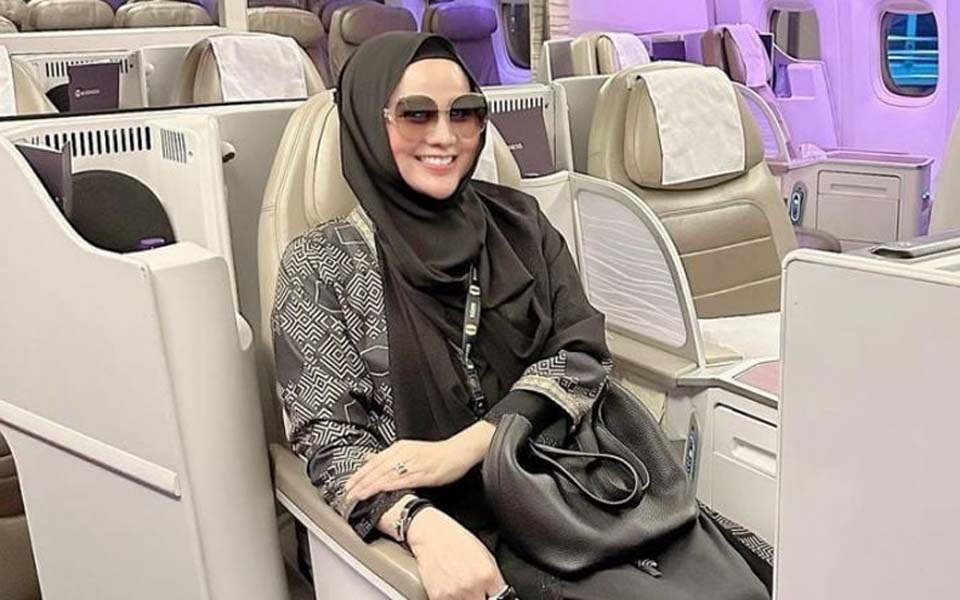Isyana Artharini – Islamic Defenders Front (FPI) leader Rizieq Shihab delivered a sermon during Friday prayers at the National Monument in Central Jakarta on December 2.
President Joko “Jokowi” Widodo, Vice President Jusuf Kalla, Coordinating Minister for Political, Legal and Security Affairs Wiranto and Religious Affairs Minister Lukman Hakim Saifuddin meanwhile attended the prayers and listened to the sermon.
Wahid Institute senior researcher Ahmad Suaedy believes that the president’s move was a sign that “moderation has occurred between the two parties”.
“At 411 [the November 4 mass demonstrations in Jakarta against Jakarta Governor Basuki “Ahok” Tjahaja Purnama] there was a big gap, in order just to meet there had to be negotiation, then after more mediation, there was dialogue, before they wanted to hold Friday prayers at the Hotel Indonesia traffic circle, the Friday prayers [at the National Monument] was different from what had [originally] been planned”, said Suaedy.
According to Suaedy the momentum of the Friday prayers was an attempt at communication with the protesting groups that was “quite ideal” because at the earlier 411 action the parties supporting the action were considered to “feel that they had the wind in their sails” so communication with them would have been “counterproductive”.
During the Friday prayers, the president, vice president and ministers sat and listened to the sermon delivered by Shihab. When asked if this would give rise to a perception that Widodo appears to have given in to the FPI, Suaedy rejected such a view.
“I’m of the view that Jokowi is attempting to communicate with broader society, one that very large, and that’s not because of the FPI, it’s because of the involvement of many different parties, particularly Koranic scholars, Islamic study groups, who took part in this process, people who actually have their own individual agendas. Politics is the art of communication right, now this is the essence of political communication because a moderation has taken place”, he said.
Nevertheless, Suaedy emphasised that after this process, the government must “consistently uphold the law on who is guilty and who is innocent”.
“If for example there is a social group that is guilty [of a crime], [the law] must be enforced, don’t let the sacrifice of certain people, for example Ahok and Buni Yani [who uploaded a video of Ahok allegedly insulting the Koran] be used to save or protect others, for example, the onea that are really and truly guilty must be punished”, said Suaedy.
Did Shihab humiliate the president?
Following Friday prayers, the President Widodo joined Shihab on the stage and expressed his thanks to the 212 [December 2] protesters for holding an orderly action. Amid the commotion and cheerful greetings, Widodo also expressed thanks for the prayers that were made to save the nation.
Only movements after Widodo left however, as reported by BBC journalist Heyder Affan, Shihab took to the stage and called on the protesters to sing a song calling for Ahok to be arrested using a tune from the children’s song Planting Corn (Menanam Jagung) which was changed to: “Arrest, arrest, arrest Ahok, arrest little Ahok now”.
When asked about the incident and what was the point in Widodo making such a huge compromise only then to be humiliated by Shihab, Suaedy said that this had occurred precisely because the government has from the start failed to take firm action against people who commit hate speech or express hatred against other groups or people.
“[The government] never enforces the law [against these people] so it has accumulated. This action was a [result of this] accumulation, the government’s mistake has been to allow these groups [to keep doing it] instead of upholding the law”, said Suaedy.
Sudden decision to join Friday prayers
Setara Institute for Peace and Democracy chairperson Hendardi also said that Widodo’s decision to take part in the Friday prayers was a “symbolic political act to demonstrate political stability and that security is still under control”. However he regretted Widodo’s attendance at the rally.
“(Jokowi’s attendance) set a bad president for Indonesia’s national life, where in the end Jokowi compromised with the elite of intolerant groups who have repeatedly perpetrated acts of violence. The mass gathering [itself] has already become a new source of legitimisation and justification to dictate the legal process [against Ahok] and what political decision is taken”, said Hendardi.
He compared this with Widodo’s utter failure to respond in any way whatsoever to the “Thursday Actions” [in front of the State Palace] which have been held hundreds of times by the victims and families of human rights violations.
Earlier, Religious Affairs Minister Lukman Hakim Saifudin said that it was the president himself who decided to join the Friday prayers at the National Monument “after of course listening to the views from various circles”.
“The decision [was made] just prior to the call to Friday prayers earlier. So indeed the time frame was really very short”, said Saifudin.
[Translated by James Balowski for the Indoleft News Service. The original title of the report was Apa arti keikutsertaan Jokowi dalam salat Jumat bersama Rizieq Shihab?.]















